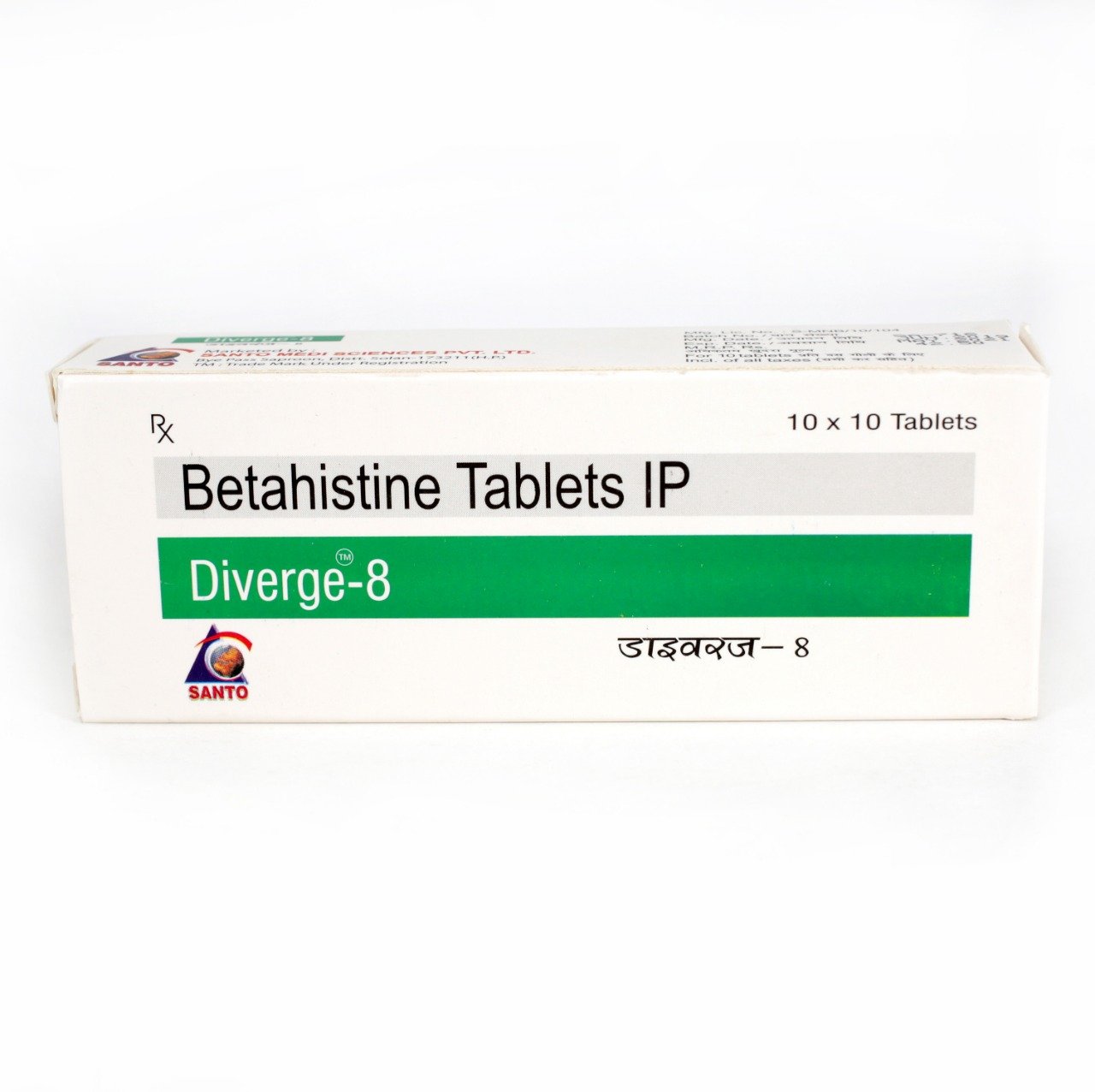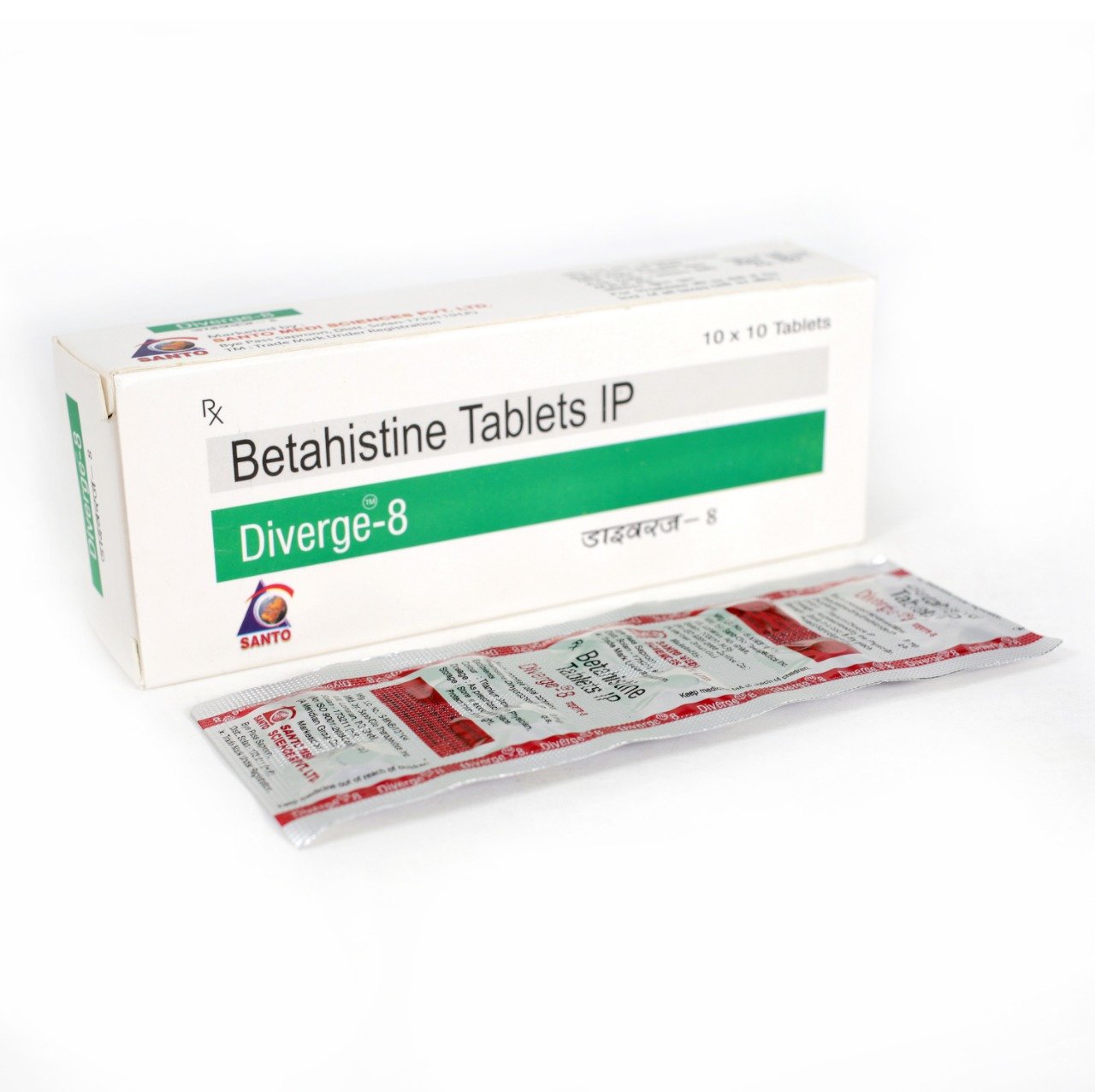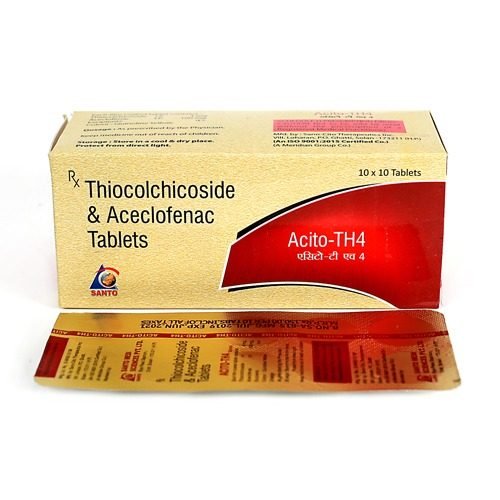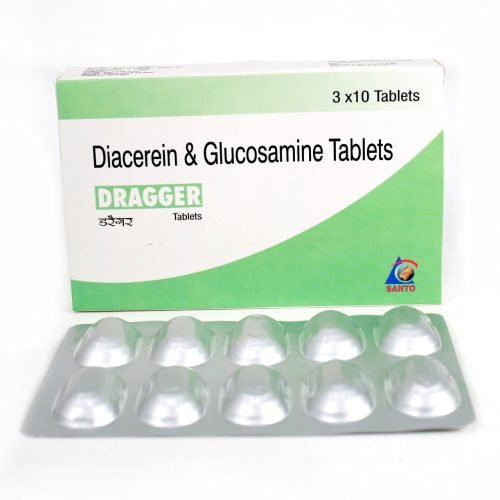- 01792-220191, 09839141955, 06390845955
- SCO No. 2 & 3, Block-B;Office No.-249A; 2nd Floor, Motia Plaza Baddi-173205; Distt. Solan (H.P.)

DIVERGE -16
September 19, 2019
DRAGGER
September 19, 2019DIVERGE -8
| Brad Name | Diverge-8 |
| Composition | Betahistine 8 mg Tablets |
Betahistine 8 mg
Diverge 8 (Betahistine) was found to have weak H1 receptor agonistic and considerable H3 antagonistic properties in the CNS and autonomic nervous system. It was also found to have a dose-dependent inhibiting effect on spike generation of neurons in lateral and medial vestibular nuclei.
Indications
- Vertigo
- Meniere’s syndrome
- Dizziness
- Tinnitus
- Nausea
- Headache accompanied by loss of hearing symptomatic
- Vestibular vertigo
Dosage
Usual dose is 8 to 16mg, three times daily taken preferably with meals
Contraindications
Betahistine is contraindicated in patients with phaeochromocytoma. As betahistine is a synthetic analogue of histamine it may induce the release of catecholamines from the tumor resulting in severe hypertension.
Precautions
- Betahistine is considered to be unsafe in patients with porphyria
- It should be administered with caution to patients with bronchial asthma or a history of peptic ulcer.
- It is not recommended for use in children.
- Patients with rare hereditary problems of galactose intolerance, the Lapp lactase deficiency or glucose-galactose malabsorption should not take this medicine.
- This medication should be used only when clearly needed during pregnancy. Discuss the risks and benefits with your doctor.
Side effects
Headache, heartburn, indigestion, nausea, stomach upset, vomiting, itching, rash and signs of a serious allergic reaction (e.g; swelling of face or throat, hives or difficulty in breathing)..
Drug interaction
- There are no proven cases of hazardous interactions. No in-vivo interaction studies have been performed. Based on in-vitrodata, no in-vivo inhibition on Cytochrome P450 enzymes is expected.
- In vitro data indicate an inhibition of betahistine metabolism by drugs that inhibit monoamino-oxidase (MAO) including MAO subtype B (e.g. selegiline). Caution is recommended when using betahistine and MAO inhibitors (including MAO-B selective) concomitantly.
- Although an antagonism between Betahistine and antihistamines could be expected on a theoretical basis, no such interactions have been reported.
- There is a case report of an interaction with ethanol and a compound containing pyrimethamine with dapsone and another of potentiation of betahistine with salbutamol.
- Betahistine is a histamine analogue, concurrent administration of H1 antagonists may cause a mutual attenuation of effect of the active agents.






